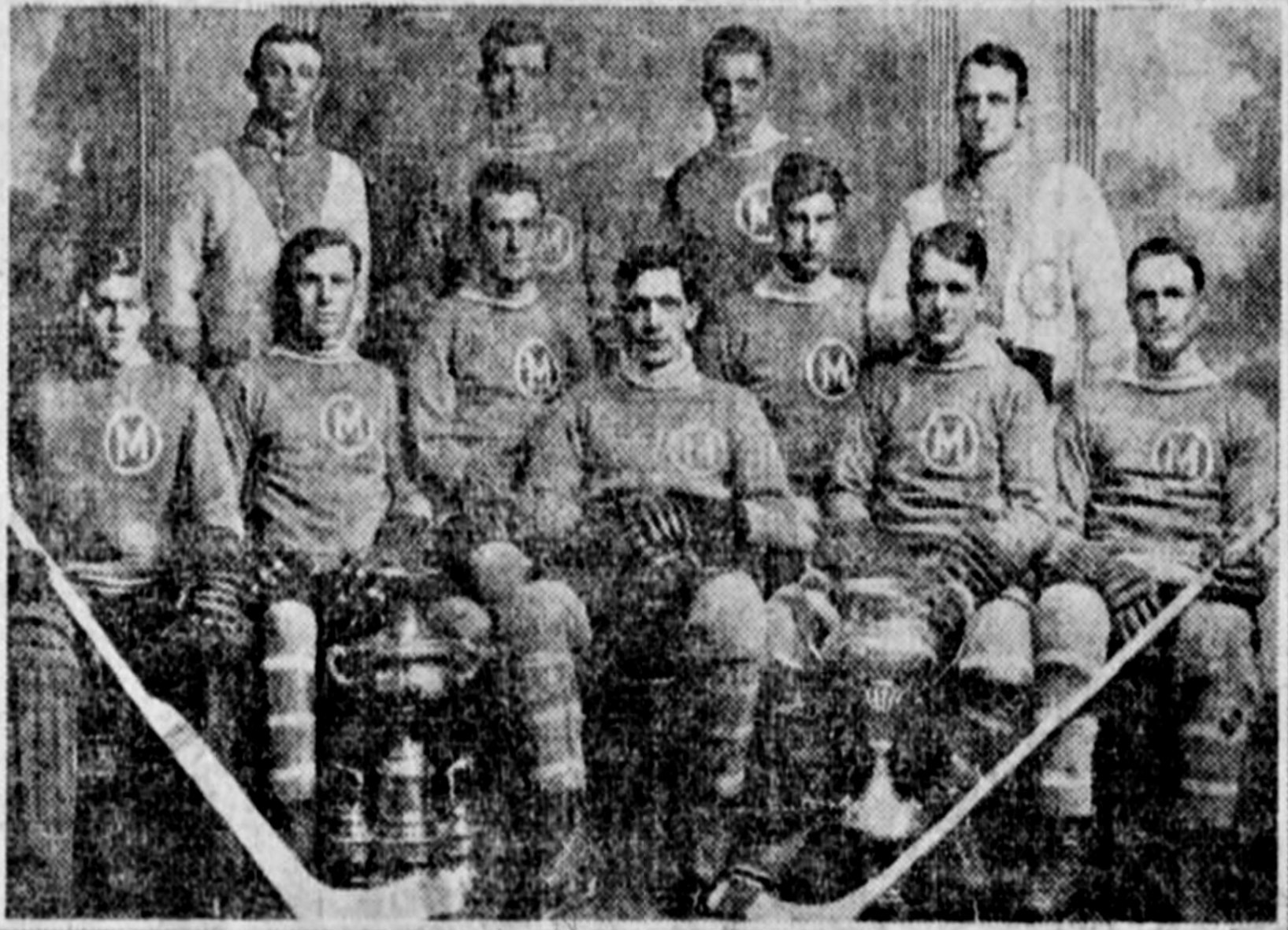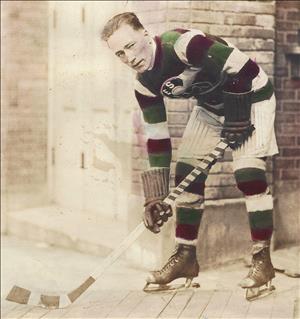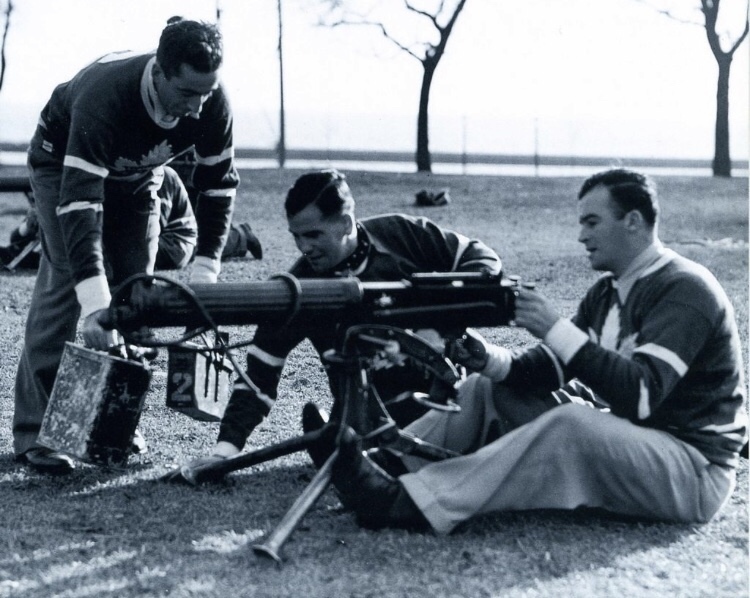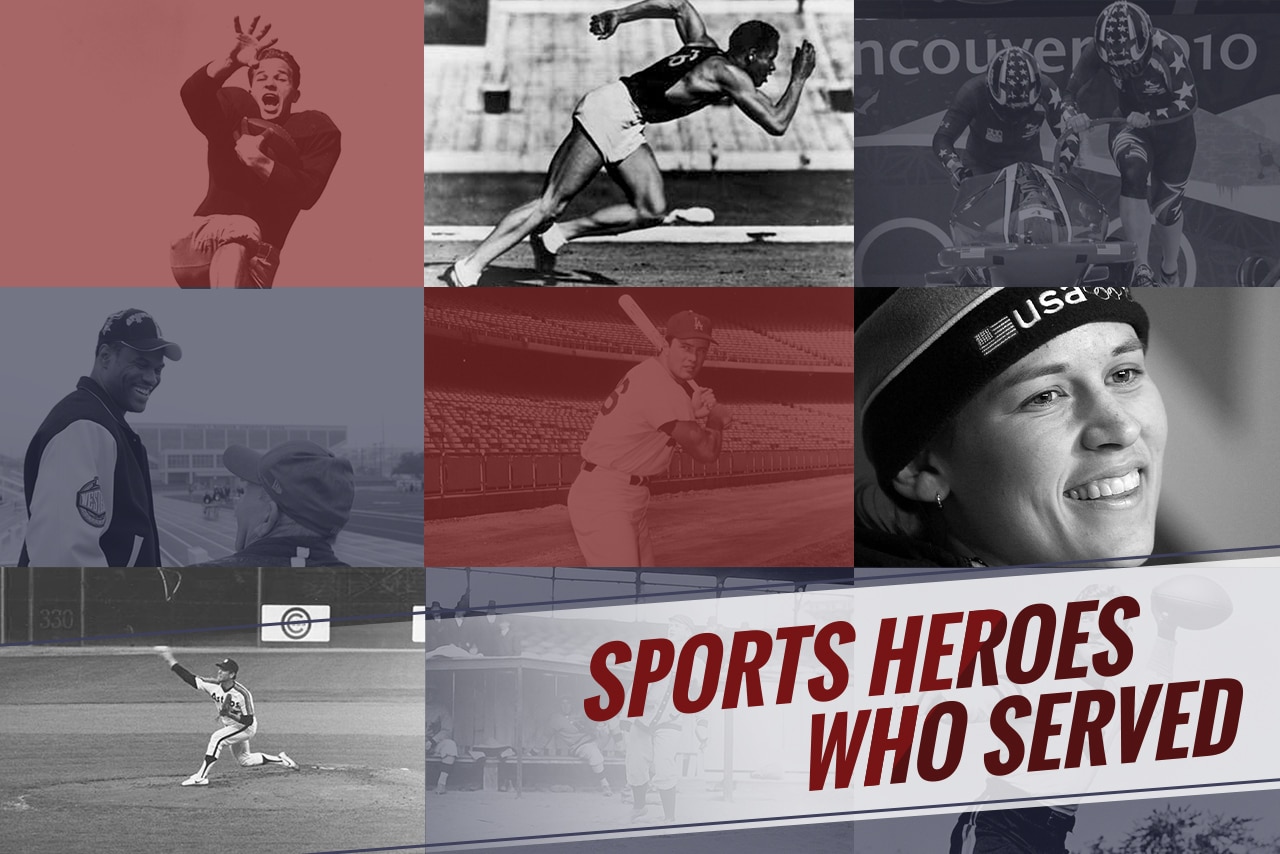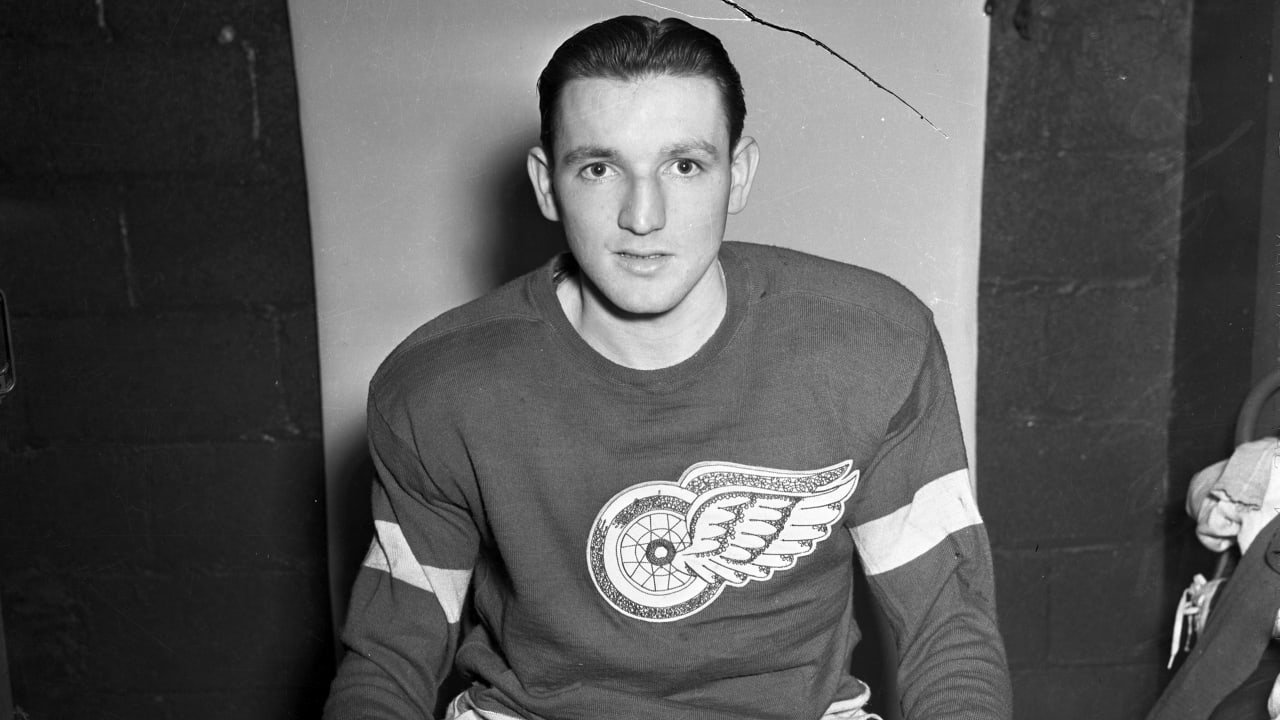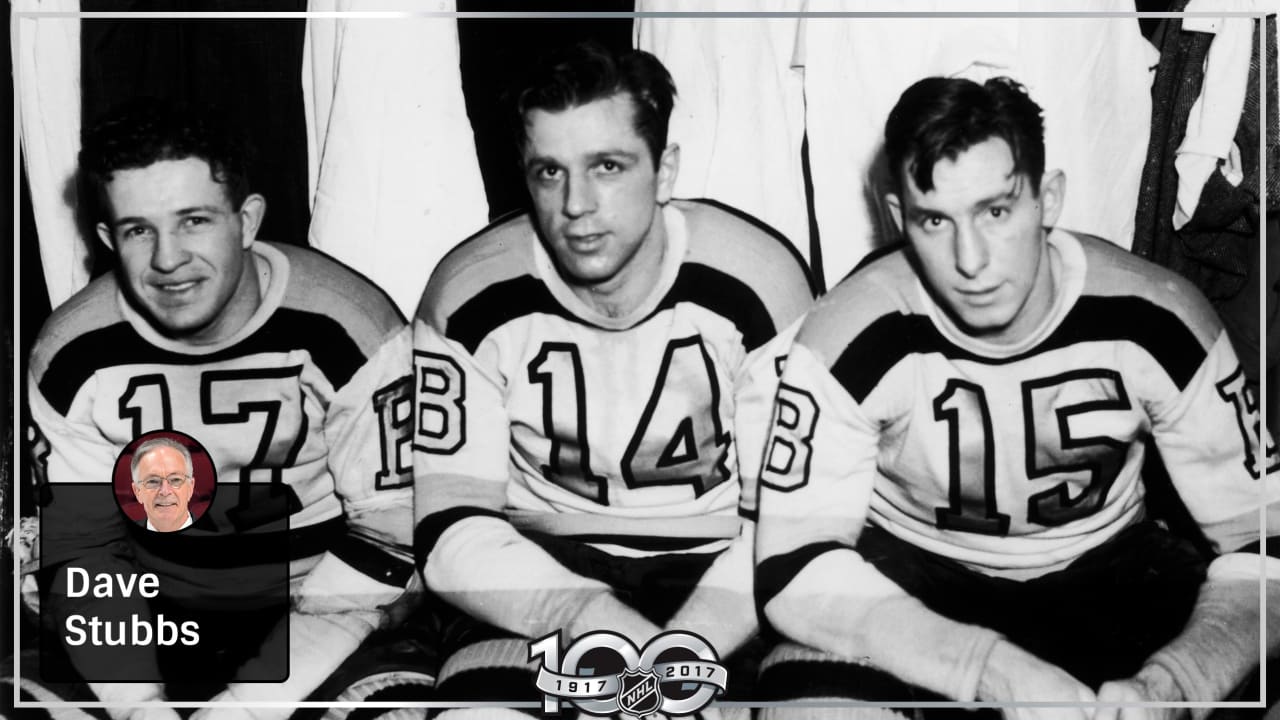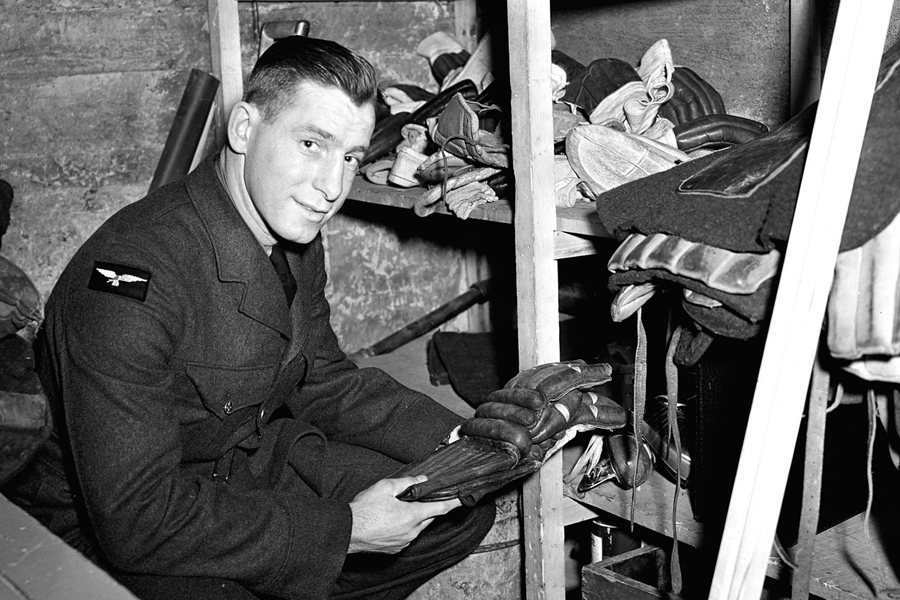While we're on the subject, what NHLers actually deployed during WW2 in any meaningful capacity?
Im positive Ken Reardon was actually involved in combat, based on his life story Johnny Bower was reasonably close. Conn Smythe was deployed to France after D-Day and wounded. Howie Meeker was seriously injured by a grenade. John Mariucci served with the US Coast guard while also getting in service games. Lynn Patrick was an MP, and Muzz Patrick probably has the most impressive service record with Operation Torch, Anzio, and southern France.
Conversely Im just about positive that Turk Broda never left North America. Actually scratch that, several sources mention him in England, but I cant find reference to him landing on the continent. Same for Syl Apps, theres reference to them serving, but I cant find any evidence they were anything other than reserves. Sid Abel enlisted in the RCAF but also seems to have essentially been there to continue playing hockey in a military uniform. Similar story for Ken Mosdell, Gordie Drillon, Roy Conacher, Frank Eddolls, Cal Gardner, Joe Klukay, Tony Leswick, and Chuck Rayner. Jimmy Orlando tried to cheat the system and ended up a wanted man in the US for dodging the draft.
The Kraut line appear to have served as aircrew, not sure what capacity though. Reading
this source sounds suspiciously similar to the typical enlisted-to-play-hockey story. I dont want to jump to conclusions there because bomber command would have been an incredibly dangerous gig if they were actually flying, but I cannot find any clear info on what any of the kraut line did in Europe
Brimsek is roughly half and half, spent most of 1943-1944 as essentially an enlisted hockey player before deploying on a naval cutter for the last year of the war. Would have been present in a support role for Tarawa & Saipan.
I cannot find any info on what Max Bentley did while in uniform. Same for Hap Emms, Bud Poile, Allan Stanley.
Two NHLers in Joe Turner (A young goalie two years out of junior with a single NHL relief appearance) and Red Garrett (promising young defenceman for the Rangers) were killed during the war.
Relevant:

www.overtimeheroics.net
"Nobody had the flair that Turk had to come back after a bad game and play superlatively." - Conn Smythe

www.pensionplanpuppets.com
Francis Charles "Kid Zero" Brimsek was an American professional ice hockey goaltender who played nine seasons for the Boston Bruins and one season with the Chicago Blackhawks before retiring in
www.defense.gov
Center of famed 'Production Line' with Gordie Howe, Ted Lindsay

www.nhl.com
War has made a significant impact on hockey history. The NHL has continued play through many conflicts, with the two World Wars having th...

www.greatesthockeylegends.com
Milt Schmidt, Woody Dumart, Bobby Bauer carried off ice after last game 75 years ago

www.nhl.com
Boston, Bruin, legend, former, RCAF, member, remembered
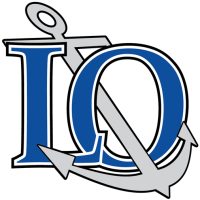
www.lookoutnewspaper.com
The 1998 Hall of Fame induction ceremonies included Roy Conacher, who maybe now will finally get some recognition as a great player in his o...

blackhawkslegends.blogspot.com
Frankie Eddolls had an inadvertent way of breaking up good friends. In 1943 the Toronto Maple Leafs traded Eddolls to Montreal for another p...

nyrangerslegends.blogspot.com
Tony Leswick 1947 New York Rangers. HockeyGods strives to untie hockey fans from across the globe covering all types of hockey imaginable. Inform, Involve, Inspire!

hockeygods.com

history.vintagemnhockey.com
MSG+ has moved toThe GOTHAM SPORTS App. Stream live games andoriginal content now! Learn more Blackout and territorial restrictions apply. MSG+ has moved toThe GOTHAM SPORTS App. Stream live games and original content now! Learn more Blackout and territorial restrictions apply.

www.msgnetworks.com
Murray (Muzz) Patrick, former New York Rangers player, coach and general manager, dies at age 83; photo (M)7

www.nytimes.com
Im skeptical that the impact of the war years on the level of NHL competition is much more than 1944-1945 being a joke.





